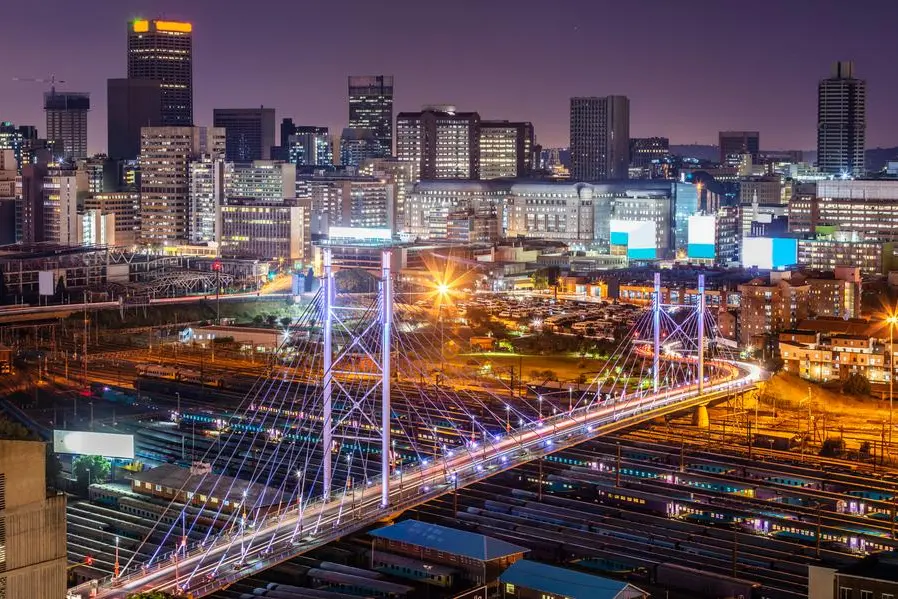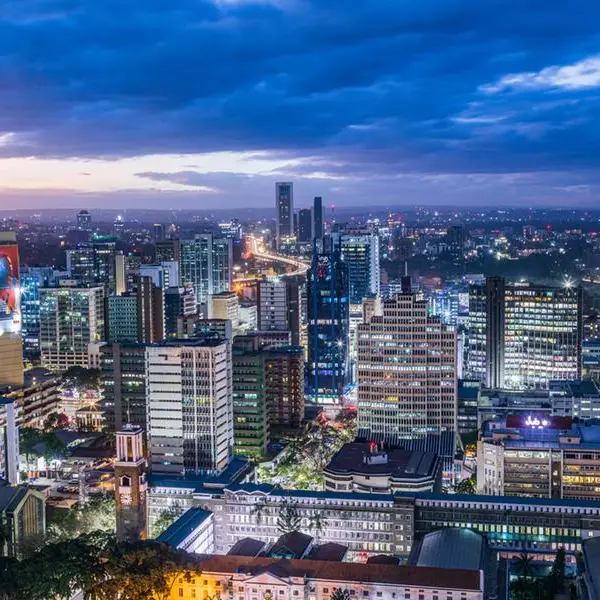PHOTO
Held at the Inkosi Albert Luthuli International Convention Centre (Durban ICC) from 14 – 16 May 2024, the event gathered various dignitaries, including Nombulelo Guliwe, CEO of South African Tourism, and Fish Mahlalela, Deputy Minister of Tourism in South Africa, among others.
Minister De Lille commenced her address by highlighting the charm of Durban and the KwaZulu-Natal province, lauding its world heritage sites, rich history, and diverse cultural experiences. She also acknowledged the challenges posed by climate change in the region, commending the city's proactive interventions in addressing these issues, as outlined in the recent State of the City Address.
30 years of democracy
Celebrating 30 years of freedom and democracy in South Africa, Minister De Lille paid tribute to the nation's struggle heroes and the unity fostered across the African continent during times of adversity. Quoting Nelson Mandela, she emphasised the importance of cherishing democracy as a unifying force among nations.
Reflecting on South Africa's journey to freedom, she underscored the significance of historic landmarks like the Mandela Capture Site & PheZulu Cultural Village and Vilakazi Street in Soweto, home to Nobel Peace Laureates Nelson Mandela and Archbishop Emeritus Desmond Tutu.
Minister De Lille also stressed the need for aggressive marketing of South Africa's historical journeys to visitors, particularly in light of the nation's 30-year milestone of democracy. She highlighted the transformative power of collective action in overcoming apartheid, urging collaboration for the greater good and emphasising the limitless possibilities for growth and prosperity.
Unlimited Africa
Under Africa's Travel Indaba theme ‘Unlimited Africa, Minister de Lille highlighted the vast and diverse opportunities awaiting exploration and growth across the continent, emphasising Africa's boundless landscapes, cultures, and experiences that transcend boundaries and offer limitless possibilities for discovery and innovation in the tourism sector.
The Minister also encouraged attendees, including buyers and exhibitors, to immerse themselves fully in the trade floor, where they could discover the richness and variety of experiences Africa has to offer. Emphasising the importance of networking, collaboration, and forging partnerships, Minister De Lille urged participants to leverage the platform to contribute to the sustainable growth of African tourism.
Africa’s Travel Indaba achieved a groundbreaking milestone this year with the participation of 26 African countries, showcasing a total of 344 products—an increase of 14% compared to the previous year. Notably, Burkina Faso and Eritrea made their debut at the trade show, underscoring the event's growing significance on the continent.
With over 1,200 confirmed exhibitors, including representatives from 55 countries, and more than 1,100 buyers, Africa’s Travel Indaba emerged as a global showcase of Africa's tourism potential. The event's sold-out floor space highlighted its pivotal role in advancing the continent's tourism growth and facilitating meaningful business connections.
The Department of Tourism funded the participation of 120 South African small-to-medium enterprises (SMMEs), providing them with a platform to showcase their offerings and engage with a diverse network of industry players from Africa and beyond. Minister De Lille expressed confidence that Africa’s Travel Indaba would continue fostering partnerships and driving growth by facilitating business deals that benefit local and international stakeholders.
Tourism Sector Master Plan
Minister De Lille highlighted the significant progress made in South Africa's tourism sector since the last Africa’s Travel Indaba, attributing the advancements to closer collaboration between the public and private sectors. Central to these efforts is the Tourism Sector Master Plan, approved by Cabinet on 27 September 2023, serving as a strategic roadmap for the sector's recovery and growth in the wake of the COVID-19 pandemic.
The Master Plan, a product of collaborative efforts between government and the private sector, outlines key focus areas aimed at stimulating demand, enhancing education and skills development, promoting entrepreneurship and economic growth, improving infrastructure and connectivity, fostering social cohesion and well-being, and promoting regional cooperation. In line with these objectives, last year saw the relaunch of the R1.2bn Tourism Equity Fund to support the growth of emerging tourism enterprises.
Internation and domestic tourism on the rise
Minister De Lille celebrated the robust growth of South Africa's tourism sector, citing impressive statistics from January to March 2024. International tourist arrivals during this period reached 2.4 million, reflecting a remarkable 15.4% increase compared to the same period in 2023. In 2023, South Africa welcomed over 8.5 million tourists, with 6.4 million arrivals from the rest of the African continent.
The Minister highlighted Africa's leading role in driving South Africa's tourism growth, with 1.8 million tourist arrivals from the continent between January and March 2024, accounting for 74.5% of all arrivals. Notable increases were observed from countries like Zimbabwe and Ghana, the latter experiencing a 249.4% surge in arrivals following the implementation of a visa-waiver scheme between South Africa and Ghana in November 2023.
International arrivals from the Americas, Europe, and Asia also showed promising growth, with increases ranging from 8.6% to 25.4% compared to the same period in 2023. Additionally, domestic tourism witnessed a resurgence, with trips surpassing 130% of the 2019 level by the end of 2023. Domestic spending also soared, recording an 80% increase compared to pre-pandemic levels, indicating a strong resurgence in domestic tourism and support for local businesses.
Sho’t Left Travel Week
Minister De Lille also highlighted the importance of the Sho't Left campaign in promoting domestic tourism and encouraging South Africans to explore their own country. The campaign encourages locals to take short breaks and discover the diverse attractions and experiences within South Africa.
By showcasing the country's hidden gems, townships, villages, and dorps, the Sho't Left campaign aims to boost tourism in lesser-known destinations and support local businesses. Minister De Lille emphasised the campaign's role in stimulating domestic travel, which has seen significant growth in recent years, with domestic trips surpassing pre-pandemic levels.
In line with the campaign's objectives, efforts have been made to increase accessibility to these destinations, improve infrastructure, and enhance the overall visitor experience. Through collaborative initiatives between government, private sector partners, and tourism stakeholders, the Sho't Left campaign continues to inspire South Africans to explore the beauty and diversity of their own country.
'
Tourism's economic significance
Minister De Lille underscored the pivotal role of the tourism sector in South Africa's economy, emphasizing its substantial contribution to job creation and GDP growth. Citing data from the World Travel and Tourism Council (WTTC), she revealed that the tourism sector created 1.3 million jobs in 2023, constituting 8.7% of all jobs in the country. Moreover, preliminary estimates suggest that tourism contributed 6.8% to South Africa's GDP, amounting to a staggering R458.9bn.
Highlighting the direct economic impact of Africa’s Travel Indaba, Minister De Lille projected a contribution of R408.6m to the South African economy in 2023. The total contribution is estimated to reach R1.2 billion when factoring in indirect and induced impacts. Notably, the event resulted in the creation and/ or sustainment of approximately 2,295 jobs, underscoring its significance in fostering economic growth and employment opportunities.
Investment in historic sites
The Minister detailed the Department of Tourism's ongoing commitment to preserving and enhancing historic sites across South Africa. Over the years, significant investments have been made in infrastructure at iconic locations, totalling approximately R211m between 2019 and 2023. These investments aim to stimulate demand and promote cultural heritage tourism, ensuring that these sites remain accessible and engaging for visitors.
Key projects include enhancements at the Robben Island Museum, such as the construction of a canopy restaurant, the digitisation of archives, and the development of a mobile app. Additionally, investments were made in the Cradle of Humankind World Heritage Site and the Baviaanskloof at the Cape Floral Kingdom World Heritage Site, among others, to improve visitor experiences and infrastructure.
Air access
Minister De Lille stressed the importance of improving air access to South Africa as a crucial aspect of boosting tourism. Recognizing the need for enhanced connectivity, she highlighted recent developments in airline operations, including the resumption of direct flights to Australia by South African Airways (SAA) and the launch of new routes to destinations like Sao Paolo and Abidjan.
The Minister commended the efforts to expand air access domestically and internationally, noting the positive impact on tourism growth. Despite challenges posed by the pandemic, South Africa has made significant strides in restoring air connectivity, with over eight million seats available for international flights. She also acknowledged ongoing efforts to negotiate visa waivers and streamline immigration processes, further facilitating travel to South Africa.
Competition and collaboration
Minister De Lille emphasised the importance of balancing competition and collaboration within the tourism industry. While healthy competition drives innovation and growth, she underscored the value of collaboration in creating seamless travel experiences and fostering sustainable tourism practices.
The Minister highlighted recent partnership agreements with Google and Airbnb as examples of collaboration aimed at enhancing tourism offerings and marketing strategies. She encouraged stakeholders to embrace a culture of collaboration, recognizing that long-term success in the sector depends on working together to create value and memorable experiences for travellers.
In conclusion, Minister De Lille reiterated her welcome to international delegates and expressed gratitude to South Africans for their contributions to the tourism sector. She encouraged attendees to seize the opportunity to forge new connections and drive the growth and success of the African tourism sector, emphasising the importance of collective effort in realising its full potential.
All rights reserved. © 2022. Bizcommunity.com Provided by SyndiGate Media Inc. (Syndigate.info).





















